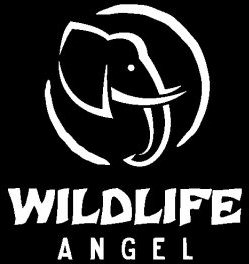During six weeks we honored six dog breeds that behave admirably in anti-poaching operations. I would like to highlight the work of a dog breed not very well known but extremely efficient in the conservation of wild animals:
The Anatolian shepherd also called Kangal.
Since many years, Namibia is facing big problems with cheetahs and leopards. In the same logic as the conflict between the lions and Masai breeders, Namibian farmers are worried by the repeated cheetahs’ attacks on their sheep and goats.
The Cheetah Conservation Fund (CCF), based in Otjowarongo in Namibia, is an NGO that works to protect cheetahs and tries to resolve the conflict between farmers and cheetahs.
So far, the President of CCF, Laurie Marker, sensitized young people in schools and farmers during meetings, inviting them not to kill the big cats, but capturing them and giving them to her. In recent years, she found an interesting alternative: breed dogs, shepherds from Anatolia, and propose them to Namibian farmers to protect their flocks. Thanks to the positive results obtained, this experiment was extended to South Africa. Today, more than ten farms in the northern region of Limpopo are equipped with Anatolian shepherds.
This is the ideal dog for the work required!
The Anatolian shepherd was bred to protect livestock against bears and wolves. His history started more than 6000 years ago. This dog breed is from the barren Anatolian plateau of Turkey, a region that receives little rainfall, with extreme heat in summer and bitter cold in the winter, as some parts of southern Africa.
After centuries of natural selection carried out by Turkish shepherds and favored by the isolation of Anatolia, protection is an atavism inked and engraved in the genetic heritage of the breed; there is nothing to teach him as his protective instinct is innate. For this reason, the Anatolian shepherd is primarily a working dog for the protection of herds of animals, especially sheep.
The Anatolian shepherd has a medium-long and rough hair, light-colored, which allows efficient cooling of the body while maintaining an insulation factor. This dog is physically imposing; males normally have more than 60 cm at the withers and weigh 70-75 kg. This is an extremely fast dog despite his size. He can reach a top speed of 75 km / h and stay several days with little food and minimum water if needed.
The amazing ability of Anatolian shepherds to protect livestock comes not only from their attributes (size, strength, good visual and hearing acuity, excellent sense of smell), but also from their total dedication. The puppies are bred with the herd since the age of 6-8 weeks, and the link is instinctively built with sheep or goats they keep. They are calm, confident, very balanced. They are able to stay with the herd all the time.
The Anatolian shepherd is a rustic dog living often longer than other dog breeds. His life expectancy is between 11 and 13 years.
Although this dog is quiet, he can become very aggressive towards all intruders or threats to the herd. He is not dependent on a master for affection or command. He is able to make decisions by himself. He has the three main traits of character that must have any effective guard dog: reliability, listening and innate sense of protection.
According to the feedback obtained from Namibian and South African farms the results are very positive regarding the shepherds in their work to protect herds. Cheetahs are quickly spotted and chased, but the great strength of this dog is that he frightens, attacks, but is never fooled. He doesn’t pursue the predators as would do some dogs. He remains permanently in contact with the herd.
The only major problem that he may face, it’s the encounter with a leopard. Some Anatolian shepherds have unfortunately lost their lives. But this situation is rare and results are especially good in cheetahs’ dissuasion.



